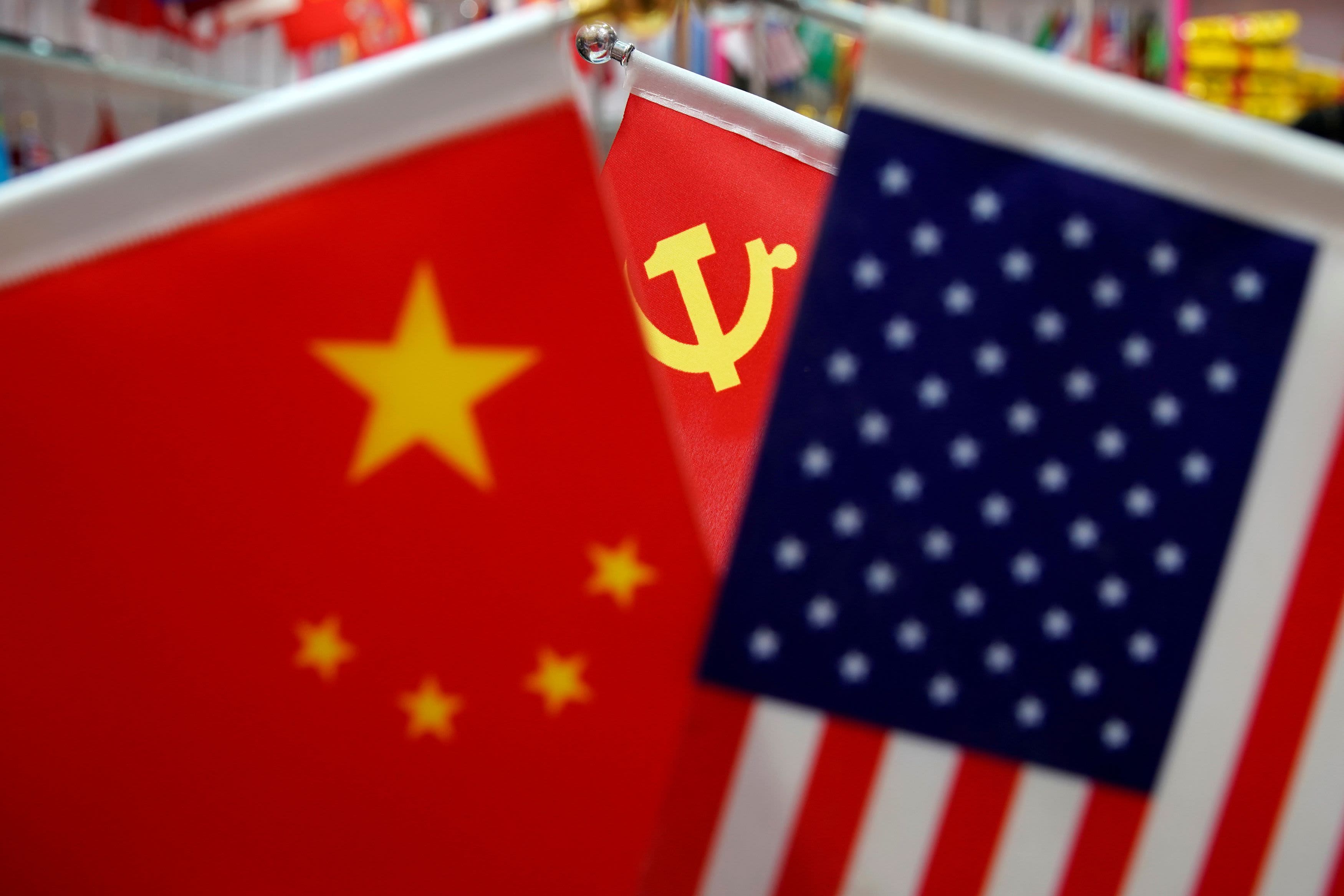
The flags of China, U.S. and the Chinese Communist Party are displayed in a flag stall at the Yiwu Wholesale Market in Yiwu, Zhejiang province, China, May 10, 2019.
Aly Song | Reuters
Even as many in Beijing recognize relations with the U.S. have reached a historic low, some scholars at a government-linked think tank remain optimistic about the long term.
"I personally have ... confidence in China-U.S. relations," Ruan Zongze, executive vice president at the China Institute of International Studies, said Friday, according to an official English translation of his Mandarin-language remarks at an online press event.
"I believe that now the U.S. is actually in an abnormal state, and I believe that it's only a short (term) phenomenon and it is an irregular state of the United States now," Ruan said. The institute is the think tank of China's Ministry of Foreign Affairs.
It has been a tumultuous few days for relations between the world's two largest economies, even as Ruan and his colleagues spoke on Friday morning.
Their remarks came shortly before China's Ministry of Foreign Affairs announced Friday the U.S. consulate general in the southwestern city of Chengdu must close, in retaliation to news earlier in the week that U.S. President Donald Trump's administration has ordered the Chinese to close its consulate in Houston.
On Thursday, U.S. Secretary of State Mike Pompeo called for firmer action against the threat posed by the ruling Chinese Communist Party to "free democracies around the world." It was the latest strongly worded speech against the Chinese government by a member of the Trump administration amid an increasingly fraught bilateral relationship. What was initially a disagreement centered on trade about two years ago has spilled into a range of long-standing issues from technology and national security to human rights.
Many expect tensions between China and the U.S. to escalate heading into the U.S. presidential election in November.
CIIS scholars on Friday spoke of the tensions as temporary.
"I think it's only a failure by the current administration, not past U.S. administrations," said Liu Qing, director and senior research fellow of the institute's department for Asia-Pacific studies. That's according to an official translation of his Mandarin-language remarks.
"Now Mr. Pompeo said that the U.S. policy towards China has failed, but I think this failure is to a large extent the result of the extreme policies of the State Department of the United States and the extreme positions of Mr. Pompeo himself," Liu said. "It is not the failure of most of the people in the United States because I believe most of the companies in the Untied States want to have friendly relations and cooperation with China."
Maintaining China's interests
While emphasizing the many areas of cooperation between the U.S. and China, the scholars also made sure to note that such partnership would not come at the cost of Beijing's interests. In the latest sign of Chinese President Xi Jinping's move to strengthen his political control, the Chinese Ministry of Foreign Affairs along with the CIIS established the "Xi Jinping Thought on Diplomacy" research center in Beijing on Monday, according to state media.
"China's economic development will not be stopped and it will not be stopped by the U.S.," Shen Yamei, deputy director and associate research fellow at the institute's department for American studies, said via an official translation during Friday's event.
American businesses have long complained that state support for key Chinese industries, intellectual property theft and forced transfer of technology has given China an unfair advantage in the international market.
In the last two years, Beijing has announced new laws and policies to improve issues such as intellectual property protection and foreign access to previously closed industries such as finance. However, concerns about Chinese supremacy in key areas such as technology have prompted the Trump administration to try to hamper the operations of companies such as Chinese telecommunications giant Huawei.
"China at the same time should work firmly to safeguard its own legitimate rights and interests and in response to some unreasonable provocations and extreme actions on the part of the United States against China," Ruan said. "China should also respond in a firm, strong and reasonable manner."
For the long run, the optimistic view is that the commercial case for American and Chinese businesses to work together remains intact.
"We always say that economic relations are actually the ballast for China-U.S. relations," said Jiang Yuechun, senior research fellow, at the institute's department for world economy and development. That's according to an official English translation of his Mandarin-language remarks.
"Now the ballast is becoming weaker and weaker," he said. "That is why now the ship of China-U.S. relations is going up and down. But will the ship of China-U.S. relations really collapse, I think that is something that remains to be seen, but I do believe that it still will take a long time before the ship finally collapses."
"many" - Google News
July 24, 2020 at 04:08PM
https://ift.tt/3jDOPee
Many in Beijing still hopeful U.S.-China relations can improve, see current tensions as 'temporary' - CNBC
"many" - Google News
https://ift.tt/2OYUfnl
https://ift.tt/3f9EULr
No comments:
Post a Comment